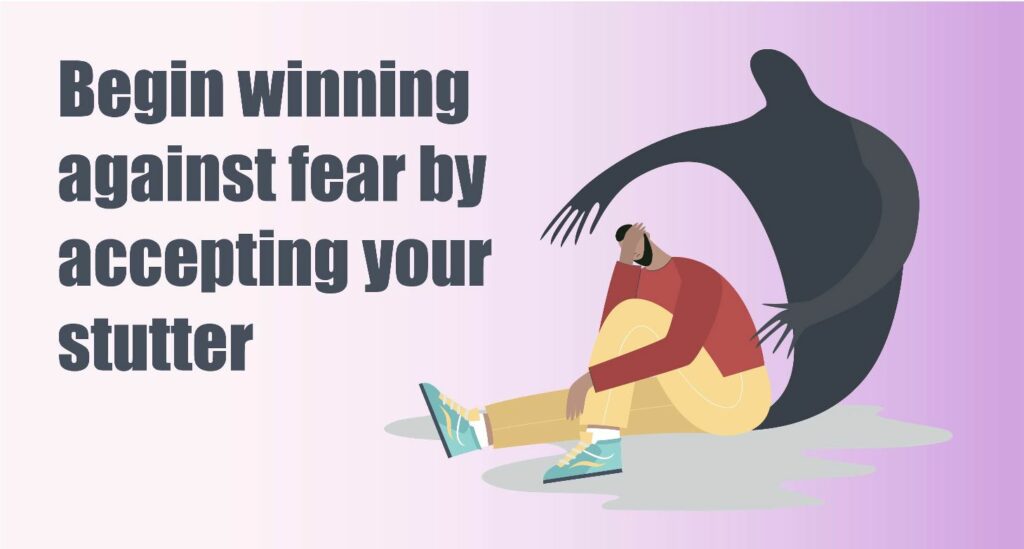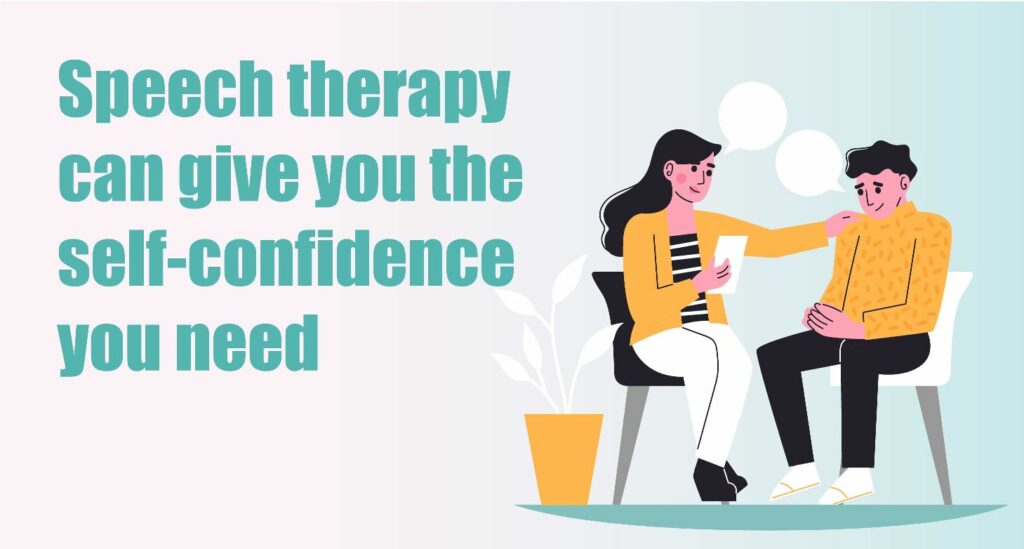Megan Washington is a popular name in the genre of jazz, indie pop, and alternative rock. She’s a brilliant singer and songwriter. Washington recently appeared on TedTalk to talk about her stutter.
In her own words, “I spend a lot of my life on the stage. One would assume that I’m comfortable in the public sphere…but I’ve spent my life…living in mortal dread of public speaking”
And that’s what happens to many of us. When we were kids and people would tell us that we’d grow out of our awkward skinny legs, or our acne would disappear when we grew up. We often dreamt that like the other “problems” that plagued our lives, our stutter, too, would disappear when we’d become adults.
Only when we either entered high school or college we realized that despite therapy and spending all those years hoping, our stutter was a part of us.

Many of us already know that we are more than our stutter. Stuttering is only a small part and it doesn’t define us. However, when we have an audience, we often face intense fear and anxiety.
Are We Afraid of Our stutter?
Are we afraid of stuttering? Turns out most people who stutter (PWS) are afraid of their listeners’ reactions than they are of stuttering.
Susannah Parkin gave the graduation speech at Hamilton College, NY in 2013.
She too stutters and during her speech, she said something that I find interesting and important for fellow PWS. “…we should do things in spite of our fear…sometimes we have to go even further. We have to do things because we are afraid.”
How to Overcome Fear of Stuttering?
Fear is something all of us have experienced. Some of us are afraid of darkness, others are afraid of the ocean.
Then there are people like us who are afraid of speaking in front of people. The thought of addressing an audience causes stress. And needless to say, stuttering and stress don’t mix well.
Fears and phobias are not easy to overcome. We know that all too well. However, it is also necessary to not let our fear of speaking overpower us at all times.
Here are a few strategies I have employed to trick my brain into not feeling fear. It has gradually helped me build my confidence while speaking in front of people.
I Practice Deep Breathing
I fill my lungs with as much air as possible and then exhale it all out before I begin speaking.
Don’t try to talk like you swim – with your lungs filled with air.
When our lungs are full, the air pressure inside our thorax is high and our vocal cords become tense. It becomes difficult to talk.
Try speaking once you finish exhaling.
Deep breathing relaxes the muscles and the mind. It’s a brilliant way to fight the stress we often feel before facing an audience.
I have tried several deep breathing or costal breathing techniques.
I have found the following video to be most helpful while learning how to master it to manage my stuttering.
I Pause, Frequently
I owe my understanding of the importance of pausing during speech to Hugo H. Gregory.
While reading his works I came across the fact that the more we try to mask our stuttering, the worse we stutter.
Instead of trying hard to hide it, I started pausing every time I anticipated a block.
According to him, stuttering more fluently is possible only when we accept our stutter.
Stuttering easily involves relaxed speech beginnings, smoother word transitions, and adequate pausing time between two phrases.
I Have Stuttered On Purpose
Stuttering on purpose serves two goals – it desensitizes a person to their own stutter. It also gives them a sense of control.
When I began stuttering on purpose, I saw that people couldn’t tell the difference between my actual stutters and faked stutters.
I also began to notice that many of my listeners simply did not care how much I stuttered. They were interested in what I had to say.
The more I stuttered on purpose, the more I began to understand the mechanics of my involuntary stutter.
It gave me the confidence to approach more people. And it reduced my fear of stuttering publicly.
Today, I stutter much less frequently and intensely than I used to even a year before I tried stuttering on purpose.
I Meditate Regularly
If you have never meditated before, feel free to use an app for guidance.
I have used several apps over the years and the result has been astounding.
Meditation has helped me calm my thoughts and channel my emotions in the right direction.
Stuttering isn’t stressful. The anxiety and fear preceding every stutter are.
Begin meditating to brown noise if you have a short attention span. Your focus will improve and so will your control over your thoughts.
You will feel calmer each day. As you feel the stress ebb away, you will find that you are stuttering with less effort and less fear.
I Have Opted For Speech Therapy
When I was a child, there weren’t too many speech therapists around. Moreover, they were costly!
So, I began seeing my speech therapist in my early 20s. It’s only been around 2 years and we both believe there is a lot I still have to achieve.
I have come to realize that stuttering therapy isn’t about finding a cure for my speech disfluencies. It’s about finding a solution to my fear of stuttering and confidence issues while talking.
Nonetheless, therapy has helped me beyond my imaginations.

To be completely honest. I also go for cognitive behavioral therapy or CBT. The frequency of our sessions have decreased in the past year, but the positive impact has been tremendous.
If you have access to CBT or psychological counseling, you should absolutely opt for it. We all know that the impact of stuttering is long-term.
I Use Speech Therapy Apps
Today, I can confidently introduce myself even though I always stutter on my first name.
I know that stuttering is a part of my speech. Everyone is different in one way or another. I am unique because of my speech! And that’s absolutely alright.
Apart from CBT and speech therapy, speech therapy apps have played a huge role in helping me understand what my feared words are, why anticipation is worse than stuttering, and how we can control our fluency every time we speak.

Speech therapy apps can complement your SLP sessions or they can work alone to help you reduce tension while speaking.
In fact, you can also refine your breathing skills, learn how to manage stuttering through meditation, and monitor your speech improvement on the app.
What I find particularly motivating is that I can track my progress on one dashboard.
I Introduce Myself as a Stutterer
I stutter and it’s no secret. I may be a writer, thinker, avid blogger, and animal lover, but I am also a stutterer.
It is a part of who I am, but it’s not all I am.
So, whether I am sitting down for an interview or talking to a crowd, I introduce myself as a stutterer.
Once I have done that, I don’t feel the anxiety or tension I used to feel. I know that people don’t expect me to be fluent. Yet, they are still sitting down looking at my face because they want to hear what I have to say.

I might take a couple of seconds (minutes on my bad days) more than the fluent speakers. Nonetheless, what I have to say is important.
That gives me confidence. And that is how I have almost conquered my fear of public speaking.
Are Stuttering and Stress Related?
The human brain is a mysterious and complex organ. The secrets of stuttering hide in the brain, and so does the cause of stress and fear.
Maybe ever since you were a kid, other children and even adults have made fun of you when you tried to speak. Maybe the last time you tried speaking to a big audience, you failed.
Now, your brain recognizes certain signs or patterns that precede your stutters. Your mind makes you believe that if you try again, you will meet with failure.
That is what happens when anticipation kicks in. We already know which words are difficult. For me, these can be words that begin with “w” or “t.” For you, words that start with “s” or “d” can be difficult.
Nonetheless, we already know when we are going to stutter. We can feel it at the back of our throats, tightening our vocal cords. So, we either replace the word or avoid speaking altogether.
Even so, the fear doesn’t go away. We have learned how to “postpone” our fear of stuttering.
Stress does not cause me/us to stutter. It can definitely make an oncoming stutter much worse.
It’s Time to Find Our Voices
Stress, anxiety, and fear keep getting the better of us despite months or even years of therapy.
Along with speech therapy, we need to understand how stuttering works and how our fear influences our speech.
Stress and fear work hand-in-hand to worsen our stutter. In a way, stuttering and anxiety share a strong relationship.
The only time I found respite was when I embraced my stutter. I realized it’s alright to take more time than the person next to me. I don’t have to sound fluent to deliver my opinion.
I just have to sound confident. And the fear of stuttering can no longer take that away from me!










